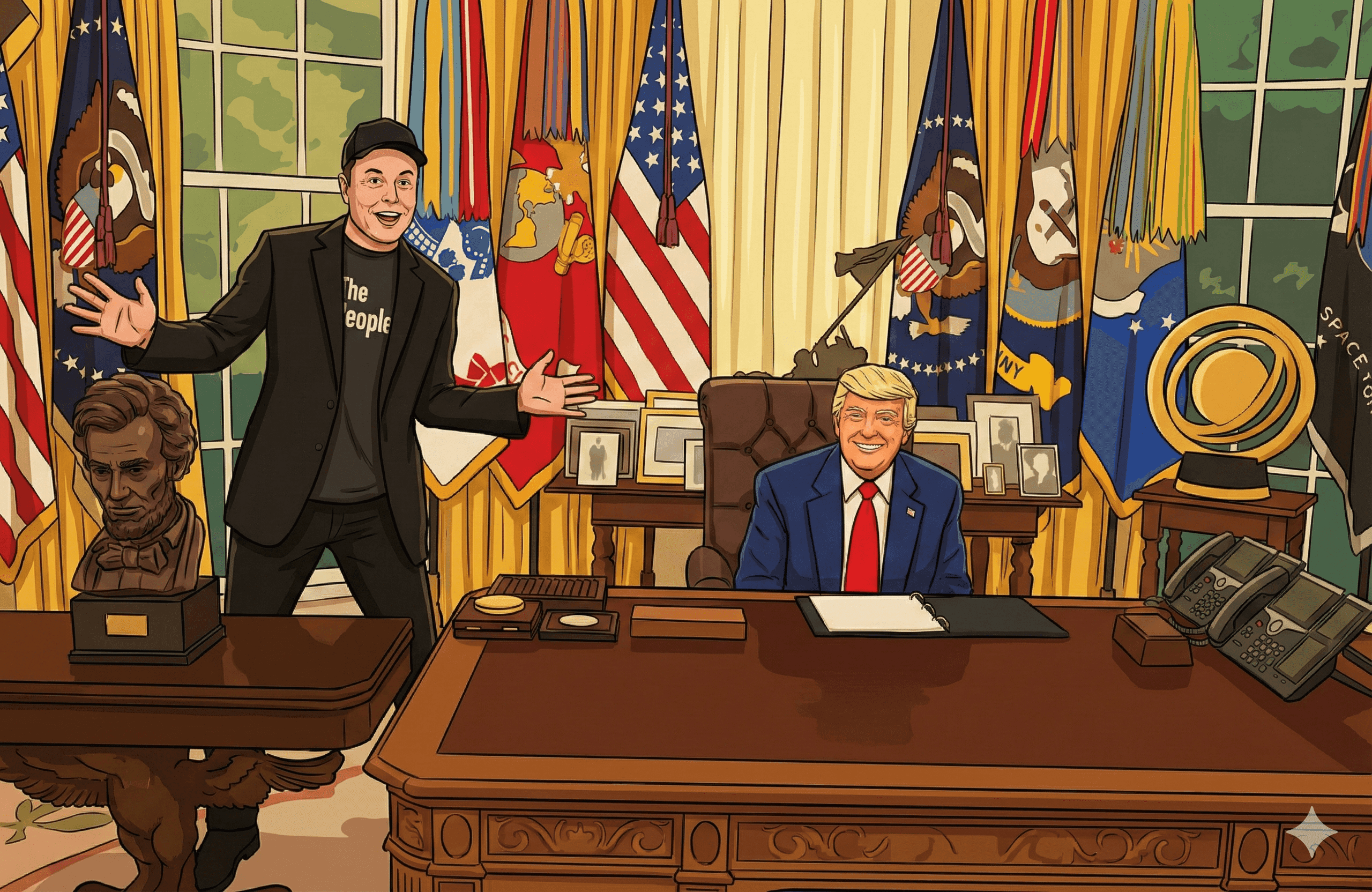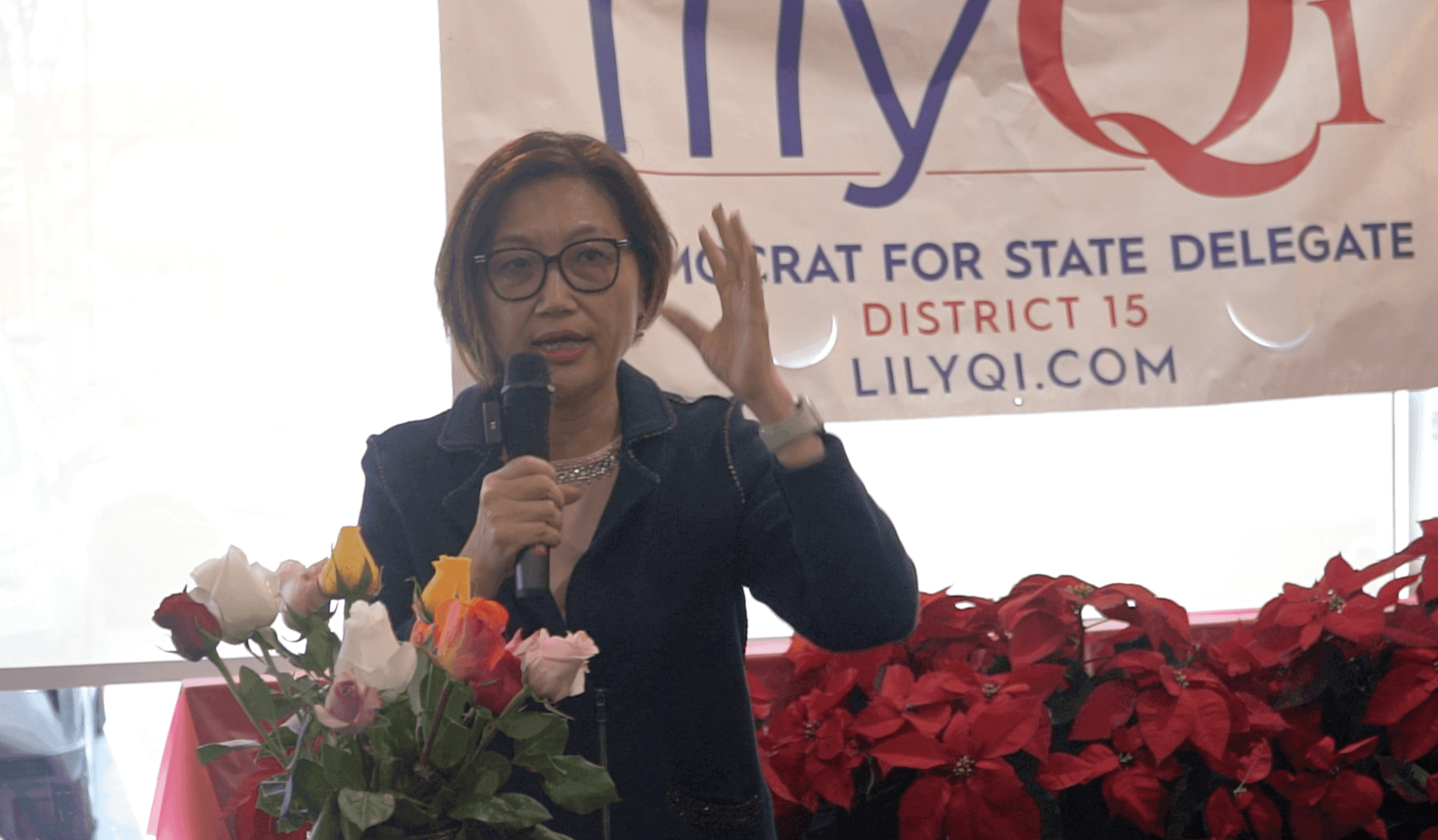Special Grants for Md. AAPI Organizations Inspired The Community to Speak up
ELLICOTT CITY Md. — It was the first time Chuangjian Duan brought his parents to a clinic for a check-up since they arrived in the U.S. six months ago. His 71-year-old mom had chronic cardiovascular disease but avoided seeing a doctor because she was uninsured. On the second Saturday in June, the Asian American Healthcare Center hosted a chronic disease screening. Duan seized this opportunity to have his parents' health checked. Thankfully, they were both fine. Duan took a breath of relief.
Duan didn’t realize the screening was almost among the last services the Asian American Healthcare Center could offer. The clinic was facing a shutdown because its facility would soon be unavailable. And it isn't the only organization struggling with facility issues in Maryland's Asian American community. Howard County Chinese School is grappling with similar challenges due to funding shortage.
Maryland State Delegates Mark Chang and Chao Wu learned about the facility struggles of the two AAPI organizations during this year’s legislative session. Within two months, they worked together to secure a special half-million-dollar fund to address these issues. Their efforts inspired the Asian American and Pacific Islander(AAPI) communities to speak up and be more active in political engagement.
Almost Shutdown
The Asian American Healthcare Center was founded by a group of Asian American medical professionals in 2008. It offers low-cost healthcare to uninsured individuals in Maryland. The current facility is provided as an in-kind donation by Dr. Rong Zhang, a Chinese American physician. Dr. Zhang uses the facility on weekdays and lends it to the center every other Saturday at no cost. However, she will retire in a few months and has decided to close the clinic permanently.
This means the Asian American Healthcare Center must suspend its services and find a new location. Ideally, they can quickly secure another in-kind donation; otherwise, they will need to rent a place. Budget is a critical issue. All staff, medical and non-medical, serve the community voluntarily. Their limited funding comes from donations and grants, which are unstable and vary each year.
“We'll try to figure out and sort out how we can move to the next step,” said Dr. Dou Alvin Zhang, the Medical Director of the Asian American Healthcare Center and a cardiologist. He tried to assure the staff, but he didn’t have a clear idea of how to handle the situation.
Dr. Dou Alvin Zhang is writing medical records after a patient visit.(Photo by: Pingping Yin)
For their patients, some have no option besides the healthcare offered by the Asian American Healthcare Center, which has been serving the community for over 15 years. Currently, most patients are parents or even grandparents of AAPI Marylanders. Some are not U.S. citizens; they come to the U.S. for temporary visits, and their travel insurance usually cannot cover the healthcare costs at regular clinics in the U.S.
"Their health is our biggest concern. Only with healthy parents can we work and live peacefully," said Duan. "However, we can't afford their healthcare costs without insurance. It would deplete our family's wealth."
Many patients at the Asian American Healthcare Center don't speak English. Some only speak their regional dialects. Providers who speak their native languages, such as Chinese and Korean, make visits less stressful, helping alleviate their anxiety about health concerns.
Learning about these challenges, many AAPI Marylanders proactively reached out to the Asian American Healthcare Center to offer help. Among them was Lanlan Xu, the Chairwoman of the AAPI Commission of Howard County.
Xu is a Public Health Advisor at the Department of Health and Human Services. With her government experience, Xu suggested they seek state support.
In early February, Maryland State Delegates Mark Chang and Chao Wu attended the Lunar New Year GALA hosted by Howard County Chinese School, where Xu also serves on the advisory committee. While watching performances together, Xu told the two delegates about the challenges facing the Asian American Healthcare Center, as well as a similar facility issue troubling the Howard County Chinese School.
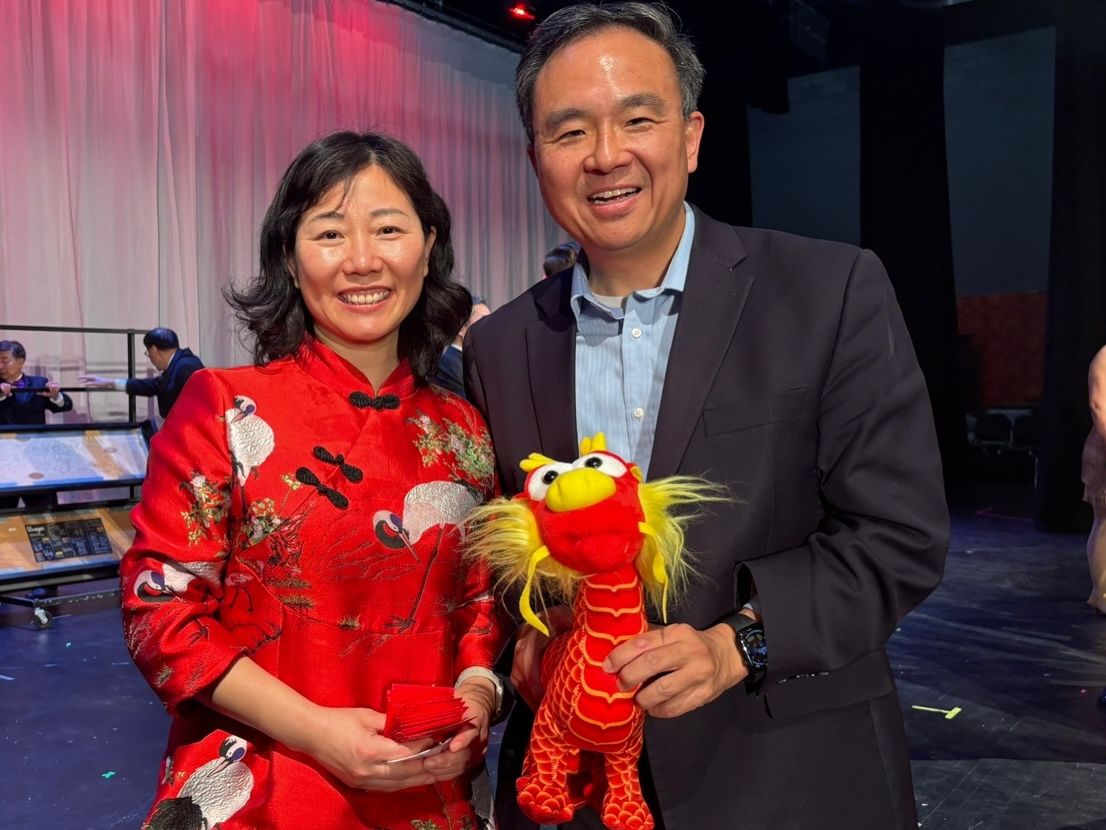
Howard County Chinese School has offered Chinese language courses and cultural events since 1998. However, throughout its 25-year history, it has never had a permanent location, relying solely on rented classrooms during weekends. Recently, the school used all its savings to purchase an office. Yet, they cannot use it because they lack funds for necessary renovations to make it habitable.
Chang and Wu are not strangers to these two organizations, as both are from the AAPI community. Though not a medical professional, Chang volunteered as a key keeper at the Asian American Healthcare Center when it was first founded. Almost every child from Chinese American families in Howard County attends Howard County Chinese School on weekends, including Wu’s children.
Upon learning of their struggles, the delegates scheduled visits to the two organizations and assisted them in applying for the capital grant, which is requested by Maryland General Assembly members to support local projects. Under the efforts of Chang, Wu and their legislative colleagues, the state approved the applications within two months, granting $400,000 to the Asian American Healthcare Center and $100,000 to the Howard County Chinese School.
Step out of Comfort Zone
“When God closes a door, somewhere he opens a window,” Zhang quoted from The Sound of Music when reflecting on this experience. With the grant, the Asian American Healthcare Center can purchase its own facility and even expand its services.
Zhang still keeps a group photo with Chang from when they both worked at the Asian American Healthcare Center 15 years ago. However, they hadn’t seen each other for over a decade. Although he knew Chang later became a state legislator, Zhang never thought to seek support from Chang or any legislators until Chang visited the clinic and asked Zhang how he could help.
“I never thought they would be able to solve our problems in such a rewarding and detailed way,” said Zhang, adding that he rarely engaged with politicians before but changed his mindset after this experience. “I feel like choosing and voting for a delegate or legislator who really cares about the community can truly help our community.”
Ming Li, Chairman of the board of directors for Howard County Chinese School, said that although they frequently engaged with local lawmakers by inviting them to school events, this was “the very first time we were aware they could support us financially.”
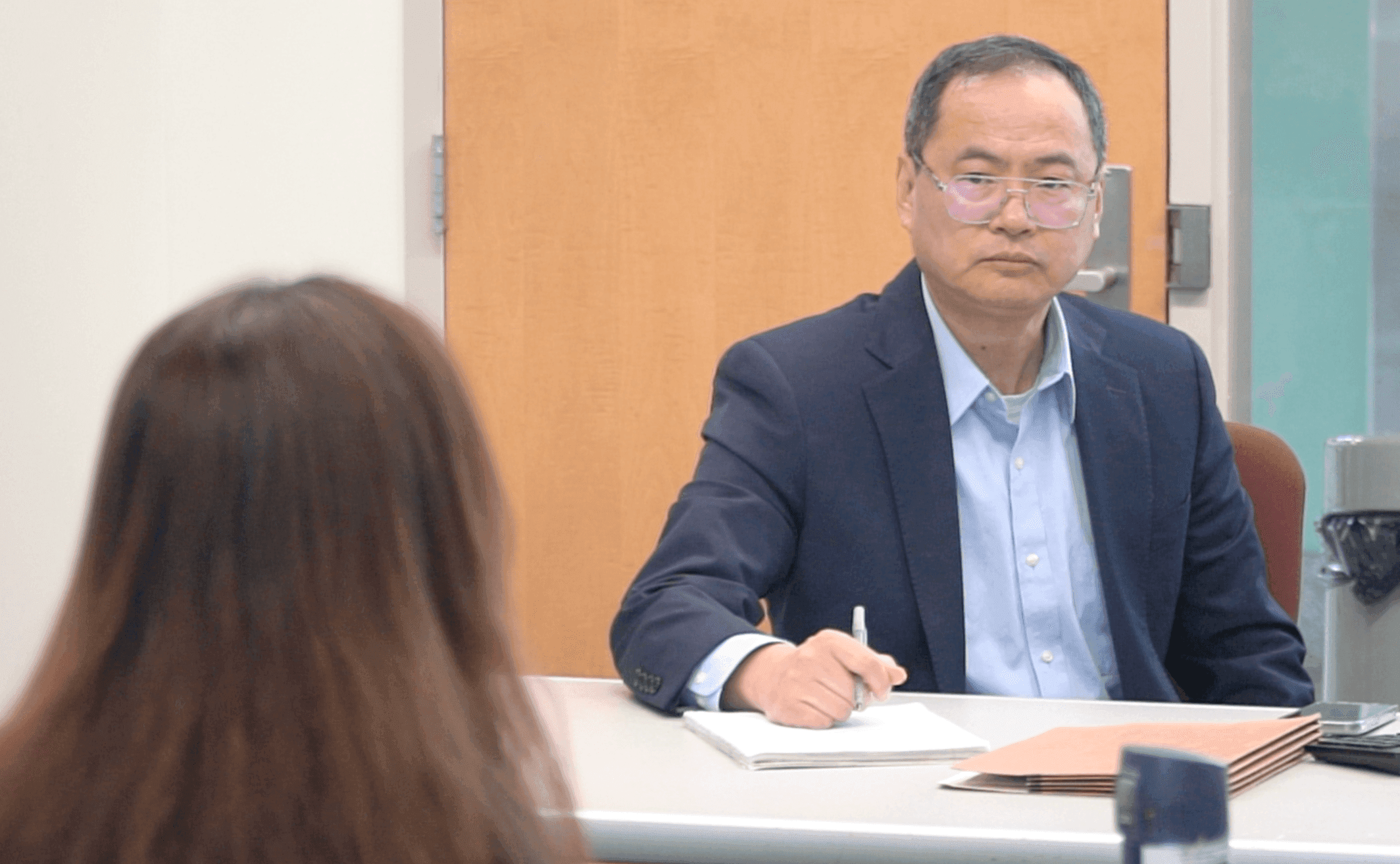
Li said he was confident in articulating their urgent need for a facility, but seeking financial support from politicians was out of his comfort zone.
“As first-generation immigrants, we’re generally not very good at making connections,” said Li. “And as Chinese Americans, we tend not to or are reluctant to make connections with political organizations. That's, unfortunately, part of our culture.”
Before this grant application, some in the Chinese American community even doubted the school’s initiatives when it offered students opportunities for community service and civic engagement. “They thought this was political,” Li said, noting that Chinese Americans, in particular, don't want to "touch politics."
Despite the internal challenges, Li and his colleagues stepped out of their comfort zone and engaged with various state legislators to highlight their contributions to the community and emphasize the need for external financial support to continue the school’s mission.
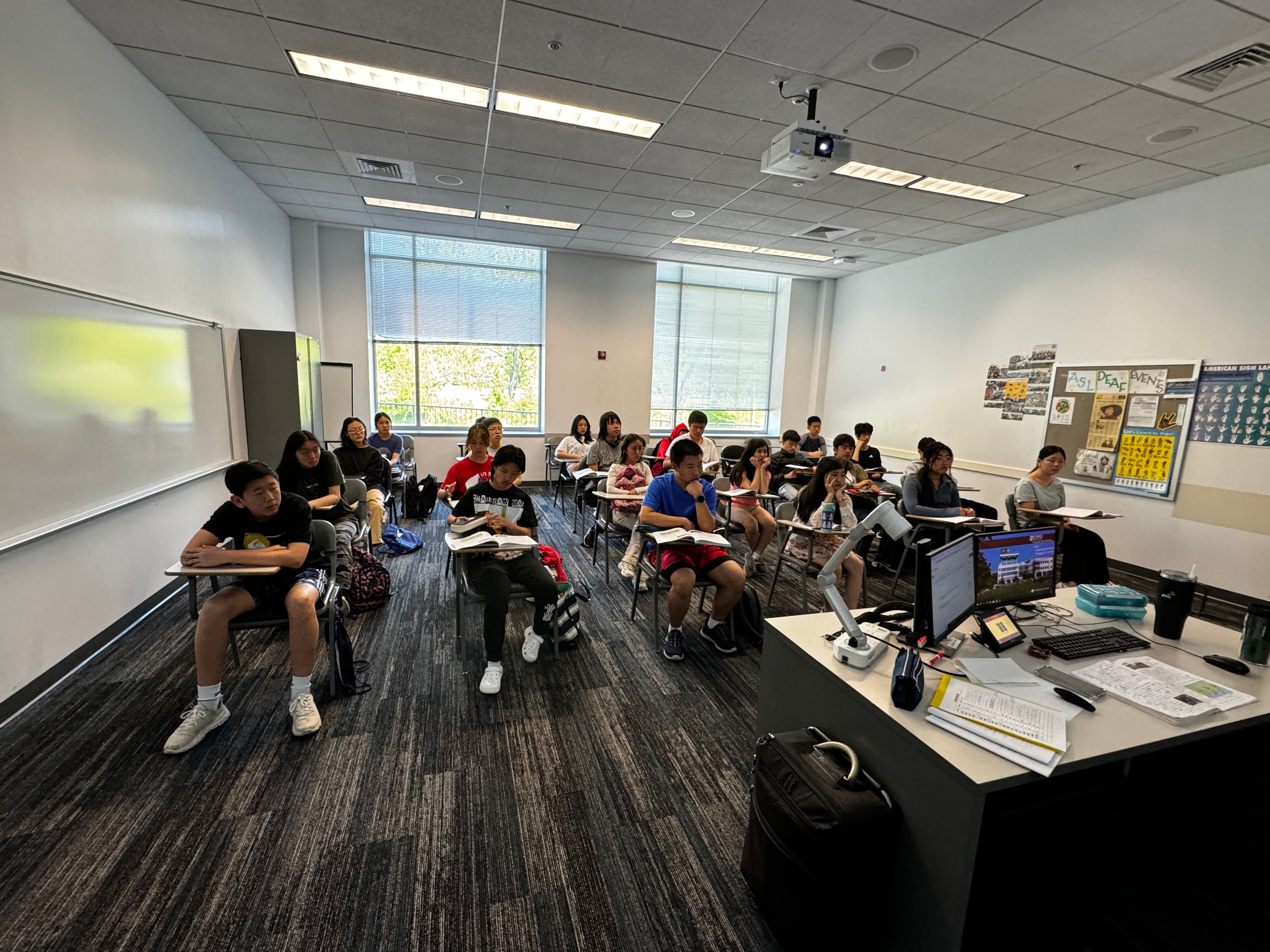
Xuan Weng, the principal of Howard County Chinese School, explained that the school offers not only language classes but also cultural classes such as martial arts and Chinese folk dance. Recently, they started an adult Chinese class, expanding their services beyond young children.
“We want to help everyone understand Chinese culture and language,” said Weng, emphasizing the importance of fostering mutual understanding. “By knowing each other better, we can support each other better.”
More to Come
The news of half-million-dollar state grants allocated to two AAPI organizations energized the AAPI community in Maryland. However, it’s far less than what was allocated to other initiatives.
“I think the state funding that we got is significant. We need to celebrate our success. But we can’t be satisfied and stop there. This is just the beginning,” said Xu. “Our government is here to serve us. Our representatives are there to listen to us. And we need to voice our opinions, our voices, and our needs.”
Chang, vice chair of the House Appropriations Committee and chair of the Capital Budget subcommittee, oversees Maryland's $63 billion operating budget and the $10 billion capital budget each fiscal year. During his decade in the Maryland State General Assembly, he noticed that only 0.1% of the state budget has been allocated to Asian American initiatives.
“To me, the budget is a reflection of our values and our principles,” Chang said. “We need to have more Asian American reflections in the budget.” He stated this was why he prioritized financial support for AAPI organizations during this legislative session.
Li said that while interacting with state legislators for funding, he was told that AAPI organizations rarely received state support not due to a lack of interest, but because they did not request it.
“It’s a collaborative effort, but as legislators, we want the community to come out to say: 'We need that as well.'” Wu said. “Maybe it's not easy to get them, but if you never ask, nobody will know.”
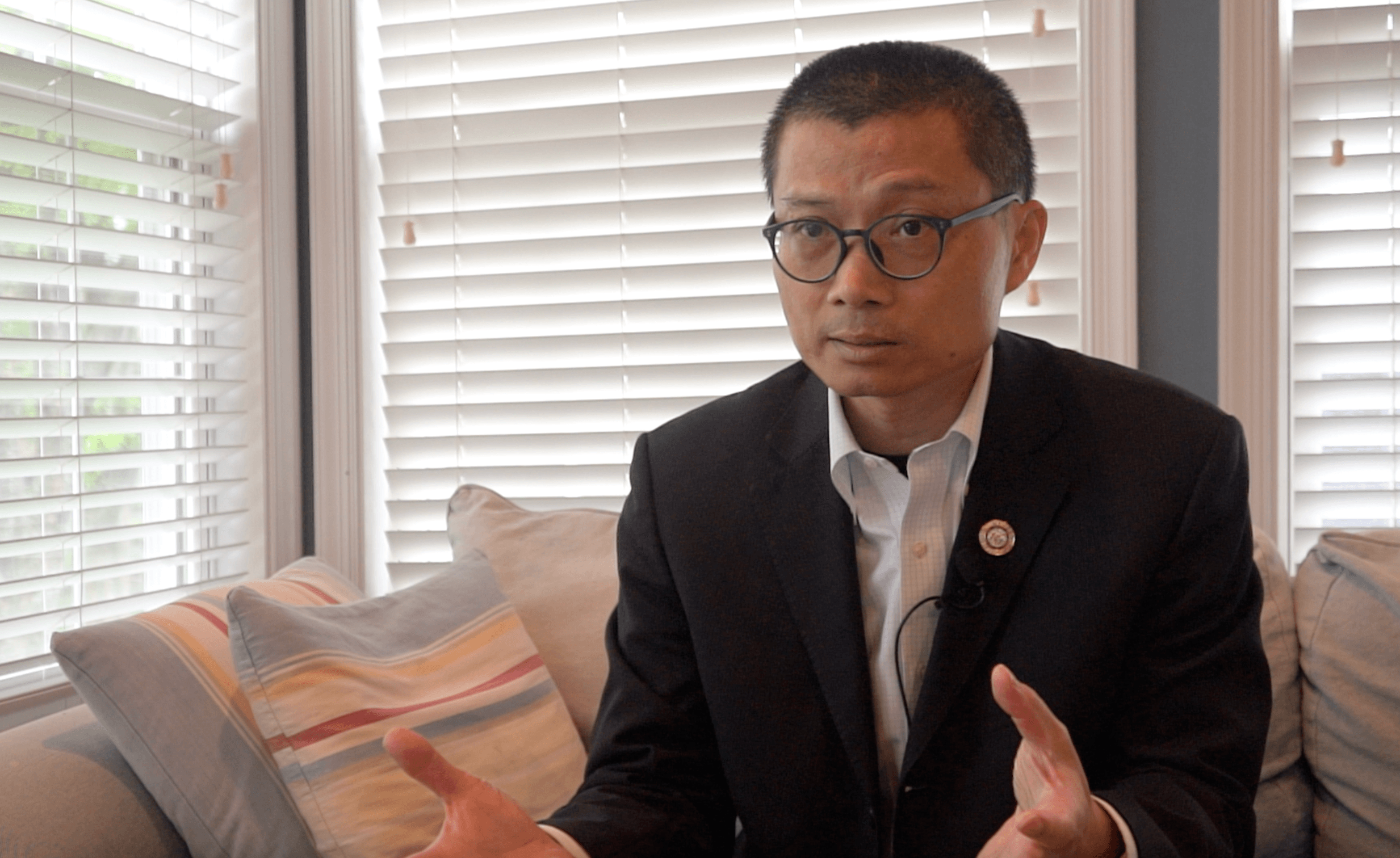
This year marked Wu’s second year serving the state. As a first-generation immigrant also from the AAPI community, Wu understands that many AAPI individuals are not familiar with the legislative process, resulting in few requests.
With the successful experiences of AAPI organizations like the Asian American Healthcare Center and Howard County Chinese School, Wu said, “I think we definitely will see more and more requests coming to our legislators.”
Upon Li's reflection of securing the grant, besides serving the community, speaking up was equally, if not more, crucial. Their success motivated Li and his colleagues to be more involved in politics, not only when they have a request.
Chang recalled that his volunteer work at the Asian American Healthcare Center in his youth inspired him to pursue public office. Now, as a veteran legislator, he finds it important to encourage others from the AAPI community to become more politically engaged.
“We're really at the beginning of more Asian Americans sitting at the table,” Chang said. “We still have a long way to go, but I believe the future is bright.”

 Pingping Yin
Pingping Yin Eileen Wu
Eileen Wu
